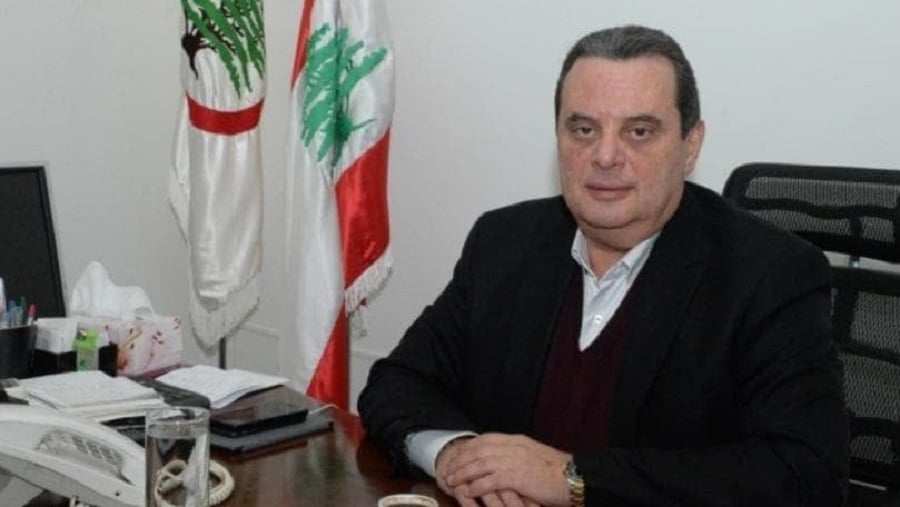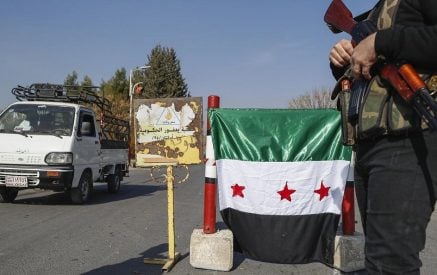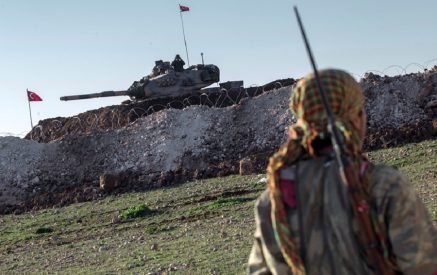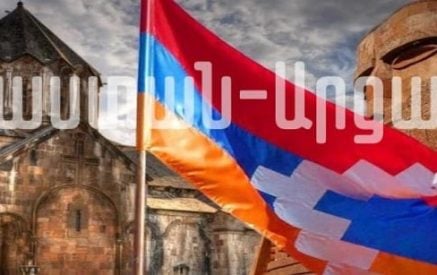Interview with Engineer Imad Wakim, one of the Leaders of the Lebanese Forces political party. Former member of Lebanese parliament, The Lebanese forces is the largest parliamentary bloc in the Lebanese parliament and the strongest Christian party both in terms of popularity and political presence.
-There are serious fears that the Lebanese will return to war, Lebanon has a 60-day deadline, and so far we have not taken any serious steps. (Bedros Manoukian)
-Yes, the Israelis are still committing military breaches and violations, on the other hand, Hezbollah does not take this agreement seriously and wants to interpret it in accordance with its interests, this represents a huge risk for Lebanon.
The United Nations Resolution 1710 is very clear and does not require any interpretations: if we, the Lebanese, had implemented it since 2006, we would have avoided all these catastrophes, we have constantly warned Hezbollah about this risk, especially after Operation Al-Aqsa Flood (a large-scale attack by Hamas against Israel on October 7, 2023), but they did not listen to the rest of the Lebanese. Now the amendments to this agreement are also very clear and unambiguous, Hizbullah does not want to take it seriously. This gives the Israelis a pretext to exercise pressure on Lebanon.
Read also
The Lebanese government must take a firm stance: actually this government is committed to the political front where Hezbollah is the leader; and has two ministers inside, its Shiite ally Amal also has two ministers; these 4 Shiite ministers agreed to this agreement and never objected or complained, in fact and in effect, this government signed this agreement on their behalf.
That is why the Lebanese government must take the implementation of this agreement very seriously and make Hezbollah understand that there is no room for maneuver. For example, let’s take Iraq, the government is an ally of Iran, but they behaved very wisely and acted as a state, asked the Iranians to leave, the fighters of the “Hashd Shaabi” (a semi-official armed group consisting of a coalition of Shiite Iraqi parties) to stay away from the borders of Syria), they restrained any military actions from Iraqi soil as much as possible, trying to avoid involving Iraq in this military conflict, and they largely succeeded in this.
On the other hand, we, the Lebanese, want to get involved in any conflict in the region. Why? All this in order to avoid or delay any military strike by Iran, or to settle negotiations with the West to reach an agreement on its nuclear capabilities. Returning to your main question, is there a serious fear that the war will resume? Yes, that possibility also exists, but I think that Hezbollah, despite its high-sounding statements, realizes the critical seriousness on the issue, and that is why it signed the agreement.
Intense international pressure may hold them back, unless the West strikes Iran militarily, in which case there is a great danger that Hezbollah will decide to get involved once again, and we will find ourselves in serious trouble.
The military conflict showed a huge gap at all levels between Hezbollah and Israel, in terms of intelligence, propaganda, advanced military technology, media, and diplomatically, Israel has enormous destructive power, and we, unfortunately, are not comparable to it.
The future of Hezbollah: Hezbollah ended as a military presence after this confrontation, but it can continue as a political party, it still has great popularity among respectable Shiite Lebanese, in a large chain of social services, we all welcome cooperation with it, but only as a political presence. UN resolutions 1701, 1680 and 1559 must be fully implemented, there is no other solution for Lebanon or the region. This time, the speaker of the parliament, their ally Nabih Berri, was negotiating (the speaker of the Lebanese parliament must be a Muslim Shiite by the constitution. Hezbollah is a Shiite party).
They accused the head of the Lebanese government, Prime Minister Sanioura of betrayal when he saved them by signing Resolution 1701, but they cannot do that to their ally Nabih Berry for decades. The main difference is that when Lebanon signed the agreement in 2006, Mr. Sanioura who is Hezbollah’s political rival, was negotiating at that time (the Lebanese prime minister must be a Sunni Muslim by constitution).
Regarding the Lebanese presidential elections, I will say the following: Naturally, we, as Lebanese forces, see the leader of our party, Dr. Samir Gaegae, as the ideal candidate, but we are realistic and know the balance and equation of forces, which is why we will not insist, like the Free Patriotic Movement of Lebanon, which insisted for years on seeing the leader of its party as president. We see the commander of the Lebanese army as someone who has a positive history of respecting the Lebanese constitution and institutions, we need a president who has a clear agenda to implement international agreements and reforms.
(The Lebanese army commander was elected president 10 days after this interview.)
As for Syria, we seek the best relations with the new leadership, if they seek friendship. We are also ready to cooperate; if not, we can defend ourselves, but only under the Lebanese army, which enjoys the support of all Lebanese and is legitimate, and therefore will also enjoy the support of the international community.
Interview with Bedros Manoukian






















































